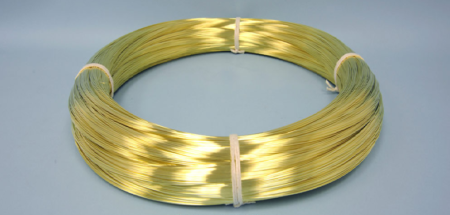Brass electrical components are the most preferred in the electrical and electronics industry today because of the properties of low conductivity and high strength of brass alloy. Brass alloy, consisting of copper and zinc is being extensively used in place of copper demonstrating that pure copper conductivity is not required for many electrical components. Of the available composition of brass wires and brass strips, the ones that are used widely by the electrical component industry is CuZn15 or CuZn30 comprising of 15% zinc and 30% zinc respectively. The rest of the alloy in the brass wires is made of copper metal. CuZn5 is also intermittently used for a few components which requires higher conductivity.
Some applications of brass wires and brass strips in the electrical industry include:
- Brass electrical connectors
- Brass pins
- Brass rivets
- Brass screw fasteners and components
- Brass plug top pins
- Brass fitting components
- Brass wire strip connectors
- Brass nuts
- Brass bolts
- Electrical and electronic meter components
- Brass board and switch components

Conductivity of brass wire depends on the proportion of zinc present in the alloy. Also ,there is not much to be gained in increasing the percentage of zinc in the alloy, from a mechanical property perspective. However from a cost perspective, since zinc has a lower metal value than copper, brass wires and strips prove to far more economical than the usage of copper. Brass wires can withstand hundreds of hours of salt spray with negligible signs of corrosion.
There are a few factors to consider before choosing the right brass wire for your application:
- Strength
- Formability
- Conductivity
- Cost
It is suggested that customers purchase brass wires that are manufactured under controlled industrial foundry settings for best quality and applicability.
SMI, being a leading brass wire manufacturer in India, delivers impeccable quality and timely delivery, making us a popular supplier in the electrical component industry.

